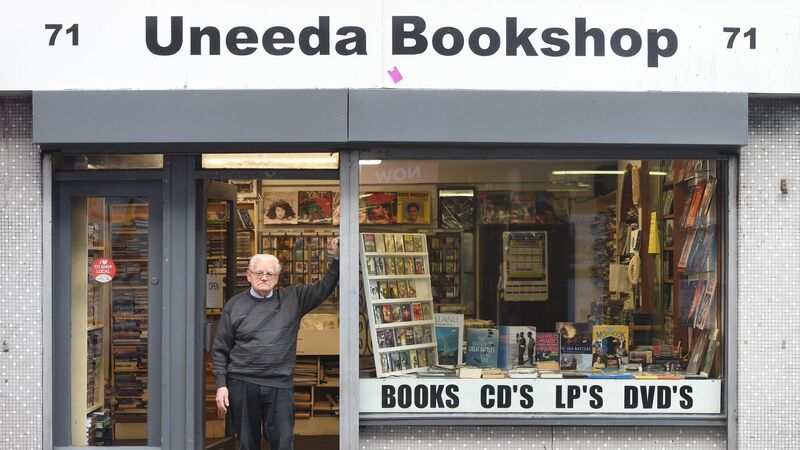Michael Moynihan: Romance rules as big chapter in Cork culture closes

John Coffey, Uneeda Bookshop, Oliver Plunkett St, Cork is set to close its doors. Picture: Larry Cummins
When people ask me where I get my column ideas I sometimes tell them Italian coffee and apple crumble combine to offer fail-safe inspiration.
And sometimes I tell them the truth.












